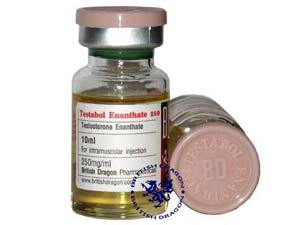 I have heard it a thousand times and more than likely, I will hear it many more times: “When I am running a stack, I am amazed at how fast I recover from training!” Physiological influences of testosterone have been studied, and testosterone use has been found to induce increases in protein synthesis in skeletal muscle1,2 and biochemical changes in the central nervous system.
I have heard it a thousand times and more than likely, I will hear it many more times: “When I am running a stack, I am amazed at how fast I recover from training!” Physiological influences of testosterone have been studied, and testosterone use has been found to induce increases in protein synthesis in skeletal muscle1,2 and biochemical changes in the central nervous system.
Another interesting fact about steroids is that they induce cellular and/or tissue adaptations during skeletal muscle hypertrophy. Steroids such as testosterone demonstrate a unique effect on muscle tissue, which may enhance recuperation. For example, the ‘cell membrane-stabilizing effect’ of testosterone is thought to diminish the rise in serum creatine kinase (CK) flux caused by muscle damage during intense resistance exercise.3,4 Creatine kinase is often used as a marker of muscle damage after intense resistance exercise. It has often been reported that high levels of CK are implicated in decreased force production when there is severe muscle soreness/muscle damage. In fact, administration of testosterone diminishes serum CK rise following exhaustive weightlifting-induced muscle damage, suggesting testosterone has a protective effect on muscle.
Researchers from Japan wanted to find out if using testosterone truly accelerates muscle recuperation, as commented by so many bodybuilders and weightlifters. Rats were placed on tension or muscle overload, and one group received nothing and the other group received a good old dose of nandrolone decanoate for 10 weeks. At the end of the study, the rat’s legs were examined for changes in the cell structure after muscle overload and steroids. The rats using testosterone had lower markers of muscle damage, otherwise supporting the theory that steroids enhance muscle recuperation. Nevertheless, significantly lower levels of [3H] (i.e., marker of muscle damage) were observed in the testosterone group. Lower thymidine uptake indicates reduced cell proliferation— lower levels of muscle damage.
The same trend (lower uptake of [3H]thymidine) was also seen after a single bout of exhaustive weightlifting exercise, in which anabolic steroid loading apparently diminished CK leakage, suggesting that testosterone minimized CK efflux through the muscle cell membrane— possibly reflecting the cell muscle membrane-stabilizing effects of testosterone.5
In conclusion, testosterone really does accelerate muscle cell recuperation and can lead to a speedier workout recovery. It may be advantageous to train muscle groups twice a week when on ‘gear,’ as muscle will have a speedier recovery time. Additionally, when you’re ‘off’ you will have to work muscle less frequently to allow a greater recuperation time.
source:musculardevelopment.com

1 Comment
I need this tran ace bad. Help.